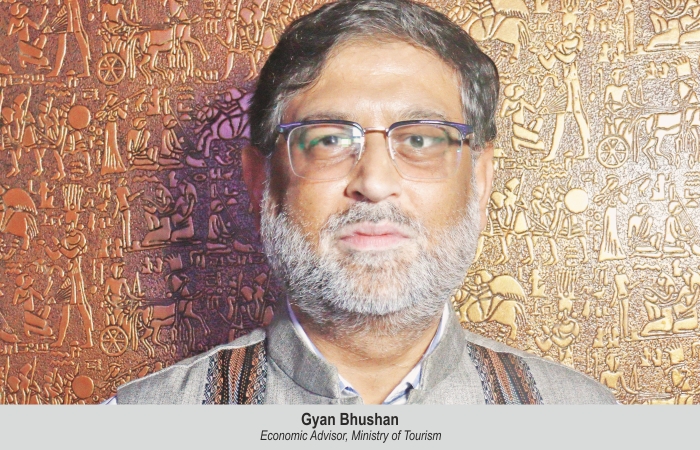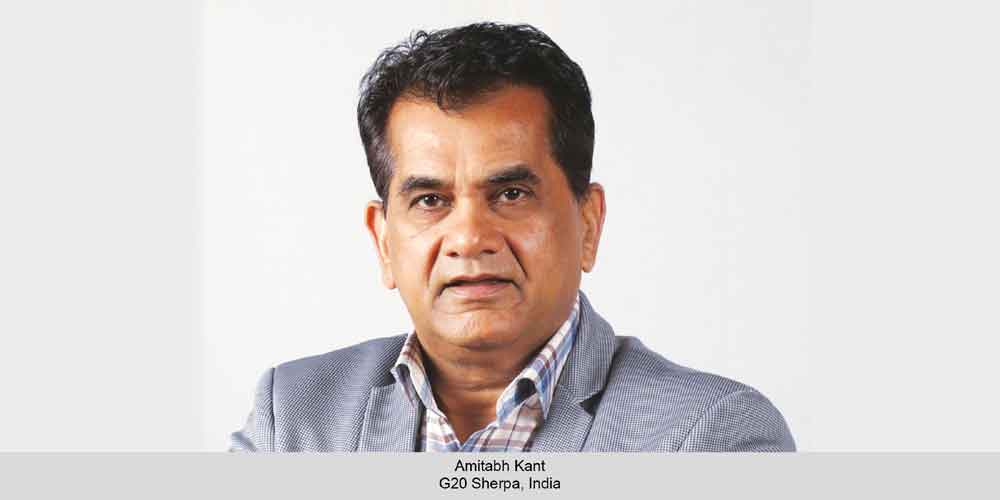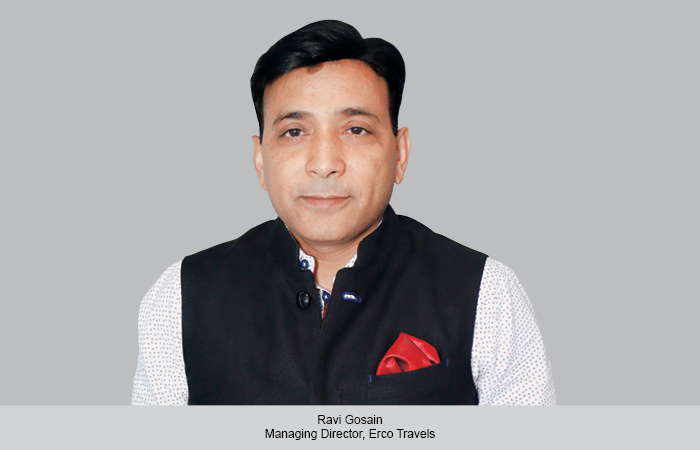Gyan Bhushan, Economic Advisor, Ministry of Tourism, recently gave a presentation on homestays and how they are linked to skill development, cutting across different segments of tourism and hospitality.
Nisha Verma
Speaking at the National Conference of State Tourism Ministers, Gyan Bhushan, Economic Advisor, Ministry of Tourism said that about `2600 crore is the total value of output of homestays in India. “This is an aggregation and about `900 crore is the gross value added of the homestays, which we get if we deduct the input from the output. The other important aspect is the multiplier effect of homestays, which comes into play. In the overall tourism industry, the output multiplier is 1.83, which means that 1 unit of output in tourism creates 1.83 output overall in the economy. This, in the case of homestays is 2.04, which means that one unit of output in homestays will create 2.04 unit of output in the overall economy. This is more pronounced if you go into the employment aspect. In tourism overall, the employment multiplier is 2.29 for the overall tourism sector, but for homestays, it is 4.38. thus, one can imagine the kind of jobs that are created in homestays, which is one of our objectives to promote homestays,” he said.
Outcome oriented segment
He insisted that the homestay segment is most outcome oriented in terms of providing the shortage of accommodations, especially at remote places and rural areas, which are now being preferred by the tourists after the pandemic and during the pandemic. “That space must be augmented in terms of both capacity and providing government support,” he claimed.
He quoted various case studies and success stories of people making it big with homestays, especially in the last few years. He also shared that accommodation is an issue in remote places and new tourist destinations. “The millennials, who are travelling a lot now need authentic bespoke and real experiences, which they can call their own. They are not dependent on the earlier stories nowadays. With homestays in rural and remote areas, entire landscape will change in the accommodation space,” he said.
MOT initiatives
He explained that the MOT, as part of rural tourism promotion, They have brought in common guidelines to be followed by the homestays. “This has been a guiding principle for all the state governments. It’s a model kind of a document, which is there on MOT website too and the state governments have been giving subsidies and making the life easier for homestays, because they don’t want complication of registration and issues like basic electricity, water connections, commercial things, etc. Some state governments are very proactive, for example Goa.
Explaining further, he said, “In India, we have 4000 classified hotels (1400 by Government of India and rest by states governments). About 50,000 units are registered under the NIDHI portal and the homestays can step up these accommodations inorganically without much investment, which is the core of the entire homestay story. We now have big groups like Taj entering the homestay segment. Accommodations ranging from a modest cottage to luxury homestays are available today.”
Gamechanger for tourism
Explaining further, he said, “For a tourist a few things are very important—ease of connectivity, ease of accommodation, and cleanliness. The homestays provide these at an affordable price. During the pandemic, many people started working from those homestays just because they need hygiene, hygienic environment and good internet connectivity. This helped them promote homestays. Not only would it promote local food, home food, and the local culture, but even women get encouragement as there are many self-help groups involved in homestays.”
Sustainability & employment
Bhushan reiterated that homestays are a low investment and high revenue segment. “They can empower local people and are great drivers for local economic activity. Homestays are great tools to take on the sustainability aspect because it doesn’t put a lot of carbon footprint on the entire tourism landscape,” he said.
In terms of employment, Bhushan added that homestays are economic multiplier. “We have estimated 46 billion jobs need to be created by 2025. It requires a lot of trained and professional workforce and it would create livelihoods in the rural areas, which is very important. By sharing one or two rooms in their houses, rural population can come into economy in no time. Only thing is that they require a lot of skilling and a lot of coaching and mentoring in that space,” he said.
Rural migration, he added, “is creating a lot of burden in the urban space and that also gets mitigated through these homestays. Cluster of homestays is better way of organising, so that there some infrastructure is created. For marketing support, going on online platform will create some form of synergy and capacity. Also required is governance and institutional framework, which has been provided by state government, central government and local government. To emphasise on the importance of digital promotions, I want to highlight one survey, which says that there has been 90% reported increase in outreach because of digital intervention and 79% reported increase in revenue with 75 reported peak season occupancy which has gone up from 26% to 50%. There was 20% tariff increase in the range of 51-75%.”
Ground issues
After getting feedback from the states, MOT identified some issues as well. Listing the same, Bhushan mentioned, “Tourism department and local administration is taking some cumbersome, opaque and complex registration requirements. However, I am glad that many of the state tourism ministers and secretaries are here. They are aware of these issues and they are trying to mitigate whatever is possible within the rules and making the rules about it. Also, clearances from multiple government agencies is another issue for homestay owners. Since a homestay owner is not a businessman, he needs simple and hands on support, so that he can take all these approvals in one go at a permissible window. Another issue is that some of the state governments also must convert their homestay into commercial establishments and give commercial rates. Apart from that, price fixing is also a very important issue. Thus, many state governments have come out with new policies where homestays have been specifically targeted to make it easy for them to do business.”
 TravTalk India Online Magazine
TravTalk India Online Magazine





